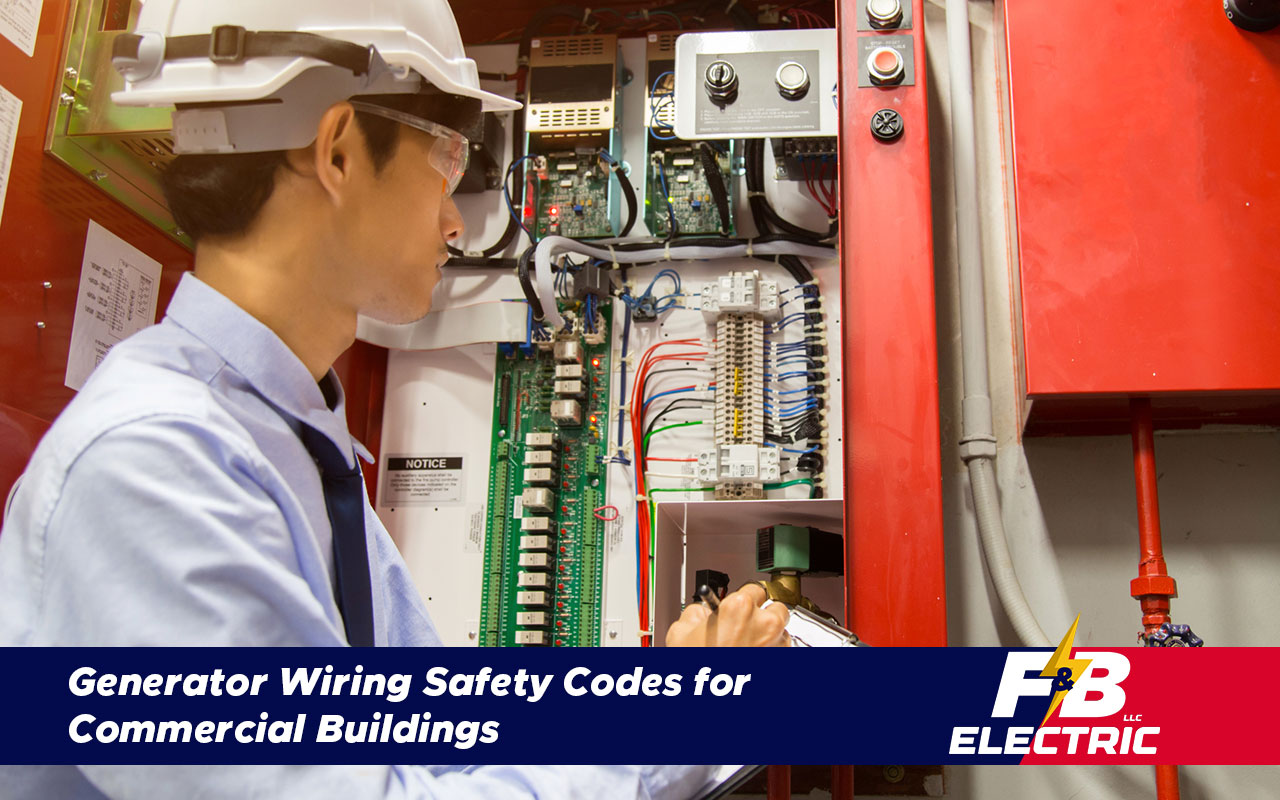
Backup generators are a smart investment for any business—but without the right wiring and code compliance, they can create serious safety risks. Understanding and following generator wiring safety codes is essential to protect your property, your team, and your equipment during an outage.
At F&B Electric LLC, we help Maryland business owners navigate safety codes, local regulations, and practical wiring needs when installing backup generator systems. From small shops to large commercial spaces, proper wiring is a critical part of any reliable backup plan.
Why Generator Wiring Codes Matter
Protecting Your Business and Employees
Backup generator wiring isn’t just about keeping the lights on. It’s about doing so safely. Electrical surges, fires, and shock hazards can all result from improper wiring or non-compliant installations. That’s why the National Electrical Code (NEC) outlines specific rules for generator wiring in commercial spaces.
These codes help ensure that your generator system operates safely under load, doesn’t backfeed into utility lines, and is properly grounded.
Meeting Local Regulations
Local jurisdictions in Maryland may have additional code requirements beyond the NEC. These can include placement rules, clearance guidelines, load calculations, and inspections. Failing to comply can result in failed inspections, project delays, or even fines.
That’s why working with licensed electricians familiar with commercial code standards is essential for a smooth and safe generator installation.
Key Generator Wiring Safety Code Requirements
Wiring a commercial backup generator means paying close attention to several code-based elements:
- Transfer switches: Must be installed to safely isolate the utility power from generator output.
- Grounding systems: Proper grounding and bonding are required to protect equipment and people.
- Conductor sizing: Wires must be sized correctly to handle the generator’s output without overheating.
- Overcurrent protection: Circuit breakers and fuses must be rated for the generator’s capacity.
- Labeling and access: All generator components, including panels and switches, must be clearly labeled and accessible for maintenance and emergency shutoff.
These steps are not optional. They’re mandatory for safety and for passing inspections.
Backup Generator Wiring for Businesses
Wiring a generator for business use is more complex than a residential setup. Commercial systems often involve higher voltage loads, multi-phase power, and critical circuit prioritization. Proper wiring ensures that essential systems like HVAC, refrigeration, computers, and lighting stay online during an outage.
Backup generator wiring for businesses must be tailored to the building’s layout, usage patterns, and compliance needs. That’s why a one-size-fits-all approach doesn’t work. Planning and customization are key to long-term reliability.
FAQs – Generator Wiring Safety Codes
Are generator safety codes different for businesses?
Yes. Commercial codes often require more detailed wiring specifications and protections than residential systems.
Who enforces generator wiring safety codes?
The National Electrical Code (NEC) sets standards, but your local inspector ensures enforcement. Failing to meet local codes can delay approval.
Can I install a commercial generator myself?
No. Generator wiring must be done by a licensed electrician familiar with commercial systems and code requirements.
Stay Safe and Compliant with Expert Installation
Following generator wiring safety codes isn’t just a legal box to check—it’s essential for protecting your business. When power fails, your generator should provide peace of mind, not added risk. That starts with proper wiring, planning, and professional support.
F&B Electric LLC proudly helps Maryland businesses install backup generators that are safe, compliant, and built to last. Reach out to schedule a consultation or get answers to your wiring and safety code questions today.
